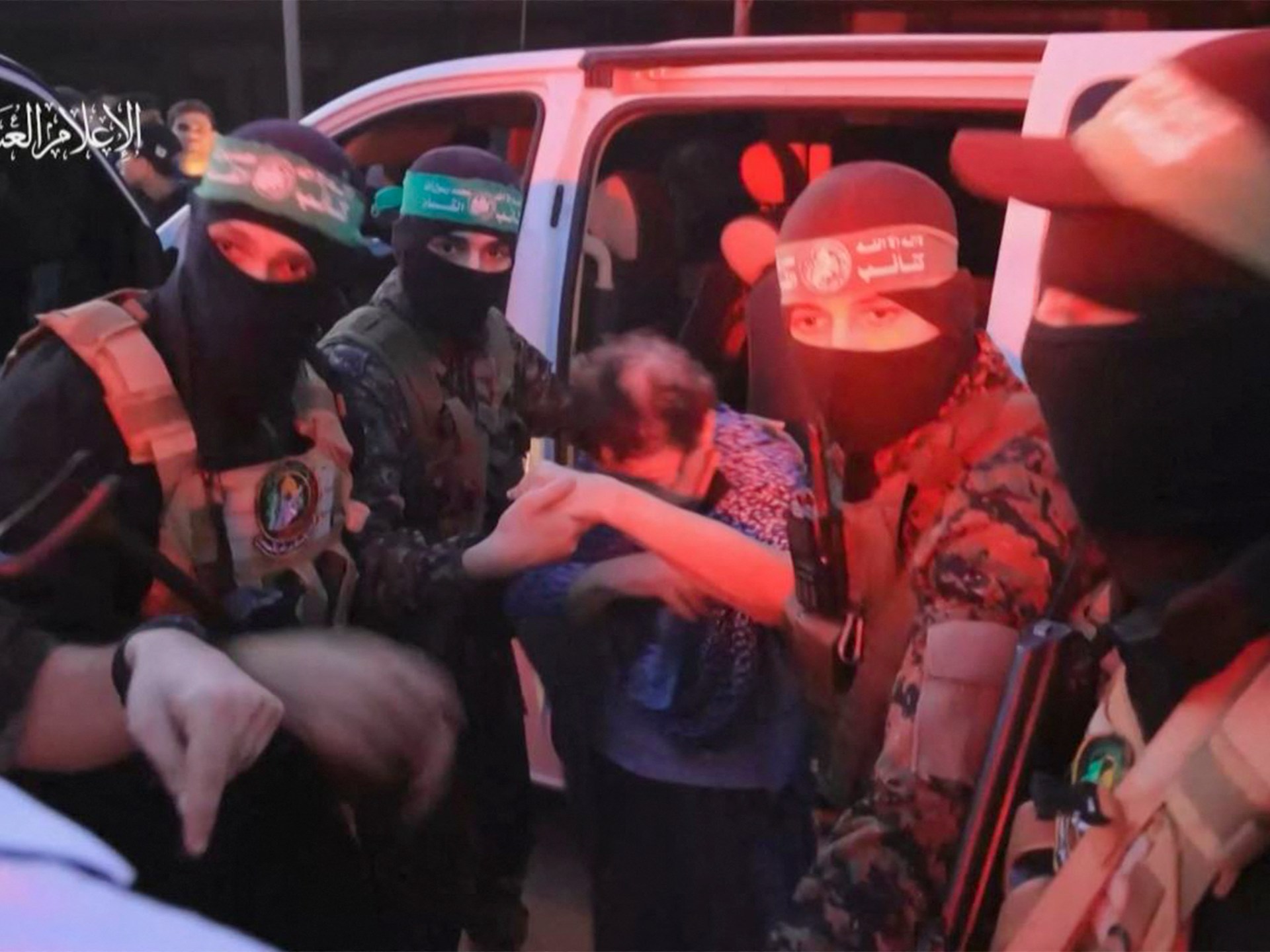The Al-Qassam Brigades release an Israeli detained in the Gaza Strip during one of the exchange operations that took place late last November (French)
Member of the Political Bureau of the Islamic Resistance Movement (Hamas), Hossam Badran, said on Monday that the problem in the truce negotiations is not related to the prisoners and their numbers, but rather to Israel’s refusal to provide guarantees on basic issues related to the lives of Palestinians in the Gaza Strip.
Badran added - in a statement - that the movement’s priorities are stopping the aggression, bringing in aid, the return of the displaced, and a clear reconstruction plan, and are not limited to the release of prisoners as promoted by Israel.
He continued that Israeli Prime Minister Benjamin Netanyahu does not want to reach any agreement, and is deceiving his people and the families of the prisoners to cover up his political and security failure.
In this context, a source close to the negotiations denied to Al Jazeera Net the Israeli allegations that Israel is awaiting Hamas’ response to the proposals presented by the Israeli delegation during its presence in Doha.
The source confirmed that the opposite is true, and that American pressure on Netanyahu prompted him to accept a limited return of the displaced to the northern Gaza Strip, and that Hamas still insists on the unconditional return of the displaced in the south of the Strip to its north.
Sources confirmed to Al Jazeera that the Israeli delegation agreed to the return of two thousand displaced people daily, two weeks after the start of implementation of the first phase of the potential exchange deal.
Ceasefire condition
A source close to the negotiations warned that Hamas might return to the ceasefire condition in the first phase of any potential agreement, after it had agreed to postpone that until the second phase.
He attributed this to the occupation's continued manipulation of the negotiations and reneging on previous agreements, such as its request to release 40 Israelis from all categories in the first stage, even though the first and second Paris Documents adopted the release of 40 Israeli civilians, including women, children, the elderly, and the sick.
The source also pointed out that the occupation is trying to reduce the exchange equation and interfere in determining the names of those released with high sentences, and Hamas is insisting that it determine who will be released.
Before the start of the latest round of negotiations aimed at reaching an agreement on a ceasefire and prisoner exchange in Doha, the Hamas movement presented a detailed offer, and Washington acknowledged that it falls within the framework reached by the previous talks in Paris, but Tel Aviv responded that the movement’s demands regarding a ceasefire... The aggression, the withdrawal of the occupation forces, and the return of residents to the northern Gaza Strip are still unrealistic.
Yesterday, a leading source in the Hamas movement denied to Al Jazeera the validity of the Israeli media leaks that talked about concessions and compromises presented to the movement, describing them as miserable propaganda.
The Hamas leader considered that Israel's propaganda aims to cover up its intransigence and evade responsibility for obstructing the agreement before the families of its prisoners.
He stressed that the movement has made clear its irreversible position, which is that there will be no exchange of prisoners while the aggression, massacres and siege continue.
An Israeli who sympathizes with the families of Israeli prisoners participates in a Purim procession in occupied Jerusalem (Reuters)
The families of the prisoners demonstrate
On the other hand, Israelis demonstrated in occupied Jerusalem to protest the city municipality’s celebration of the Jewish holiday of Purim before reaching a solution to the issue of detainees in Gaza.
The demonstrators accused Benjamin Netanyahu's government of underestimating the pain of the families of Israeli detainees in the Gaza Strip.
Thousands of Israelis had submitted a petition to the municipality against organizing the festive march, but the municipality went ahead with organizing it.
Families of Israeli prisoners and their sympathizers demonstrate almost daily in Tel Aviv and other Israeli cities to demand that the government conclude a prisoner exchange deal.
Source: Al Jazeera

